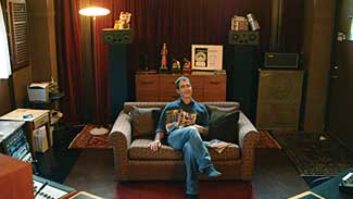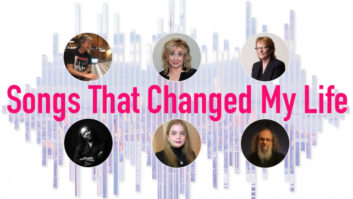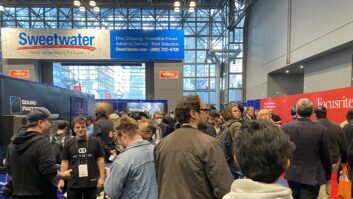New York, NY (October 20, 2017)—Thursday afternoon, in an important Special Event, “Producing Across Generations: New Challenges, New Solutions,” a panel led by New York University’s Nick Sansano, Director of Production Studies/Co-Director of Musicianship, and featuring audio pros (including George Massenburg), addressed the elephant in the room-or, as the AES explained it in event promotional materials, “…music professionals continued to make records for a living. How are they doing it? How are they getting paid?…How can we expect to see any income from streaming royalties when artists aren’t even getting any?”
So, what has changed in the industry that requires new approaches to finding work? “Lack of funding is at the top of the list on the negative side, and advances in production/recording technology leads the positives,” offered Sansano in a pre-event interview for the AES Daily. “In fact, without the tech advancing and, in turn, driving down costs, we might have been dead in the water. The DIY aesthetic has kept the song production business and art form alive. To elaborate on the lack of funding, I see this hurting artist development, incubation, etcetera on the artistic side, and the inability to provide for sustainable wages on the business side. Combined, they result in many projects, artists, songs, recording sessions and mixes never reaching their full potential.
“I think pop music has been hurt the most because it has lost the most commercial value when compared to, say, film, video games, TV, multimedia works, theater and so on,” added Sansano. “Having said that, programmatic or supportive forms of music—that for games, film and TV, theater, to name a few—has not been as negatively impacted as pop-music production. The positive aspects of technological change have affected all media. We have infinitely stronger and more affordable software and hardware available. Music has DAWs and photography has Adobe products,, many of which are now on a subscription model, bringing upfront costs down and keeping it open-ended in regard to updates and modifications.”
It’s arguable that producing music today has been “democratized,” or the investment necessary for entry into music production has largely eradicated–especially for pop music production. How does this create new or different challenges in succeeding as a traditional music engineer?
“With internet access, everything has been democratized,” Sansano. said “Literally anyone can record a song and then release that song to a global audience at the touch of a button-no gate keeper. Of course, no gatekeeper means no standards of quality, artistic merit, commercial merit or order. There is a great deal of ambient noise out there in the democratic ether of the web, but few intelligible voices. Therefore the challenge comes in the way of marketing, branding, identity and all that supports the ‘why me’ narrative.”




